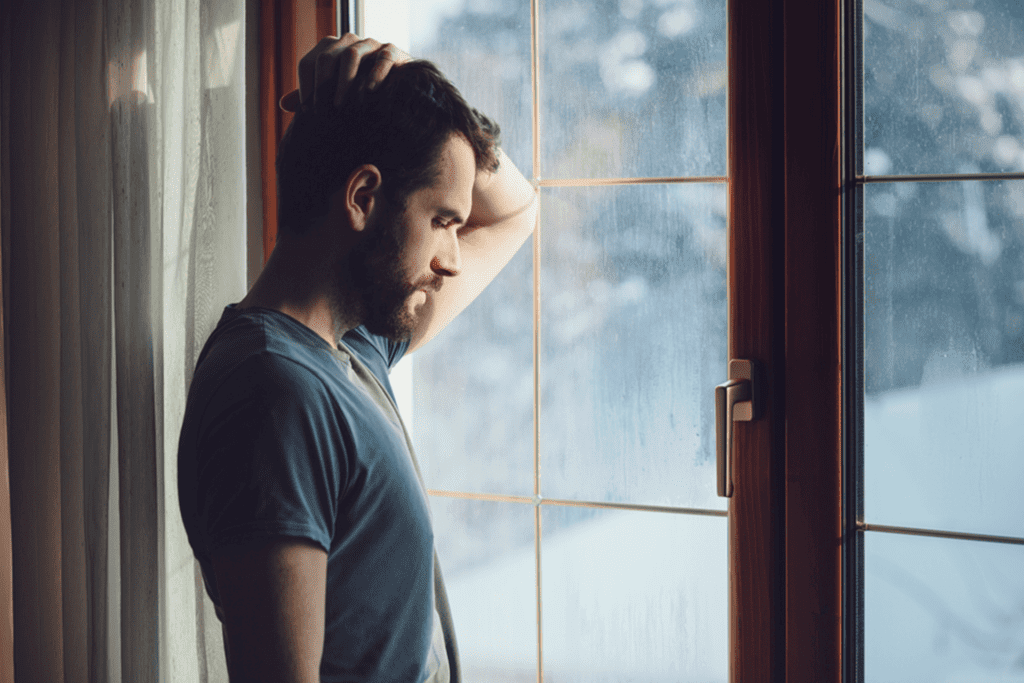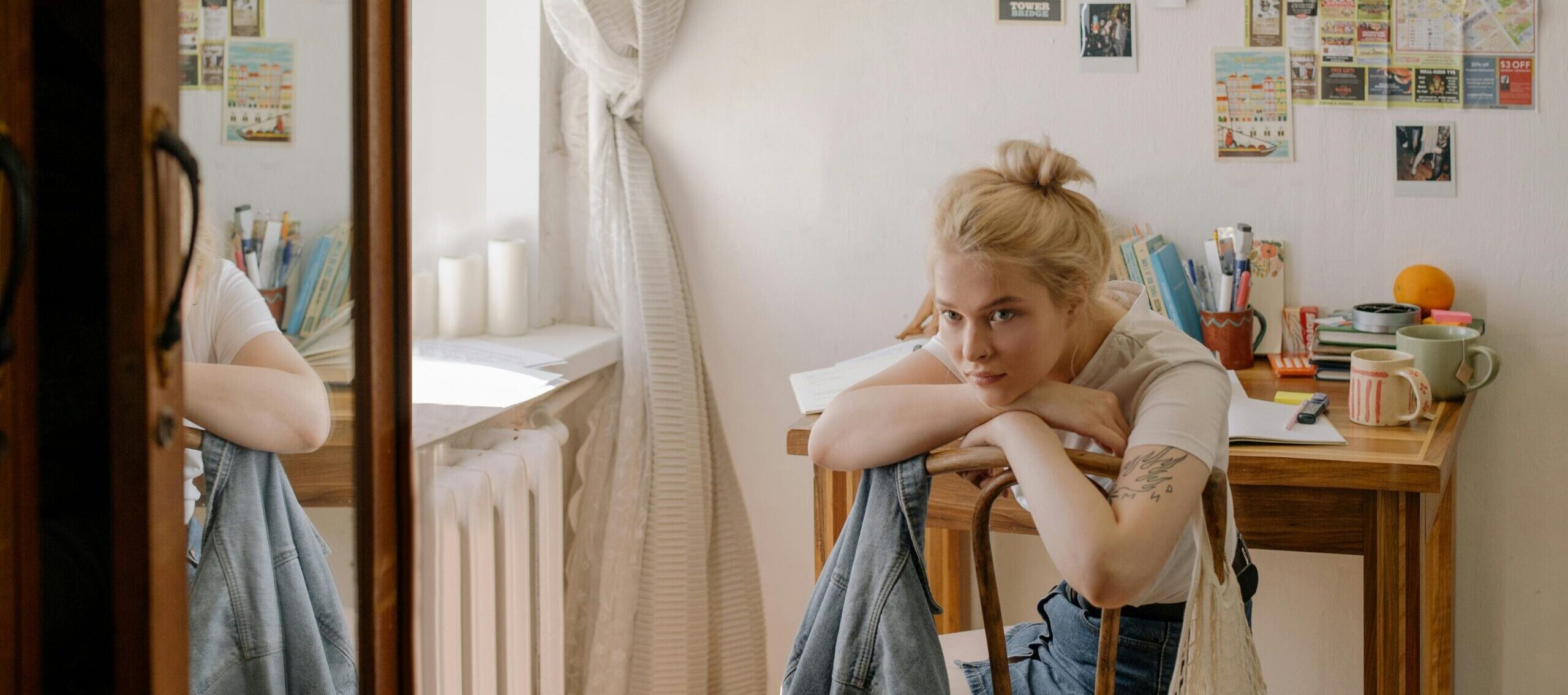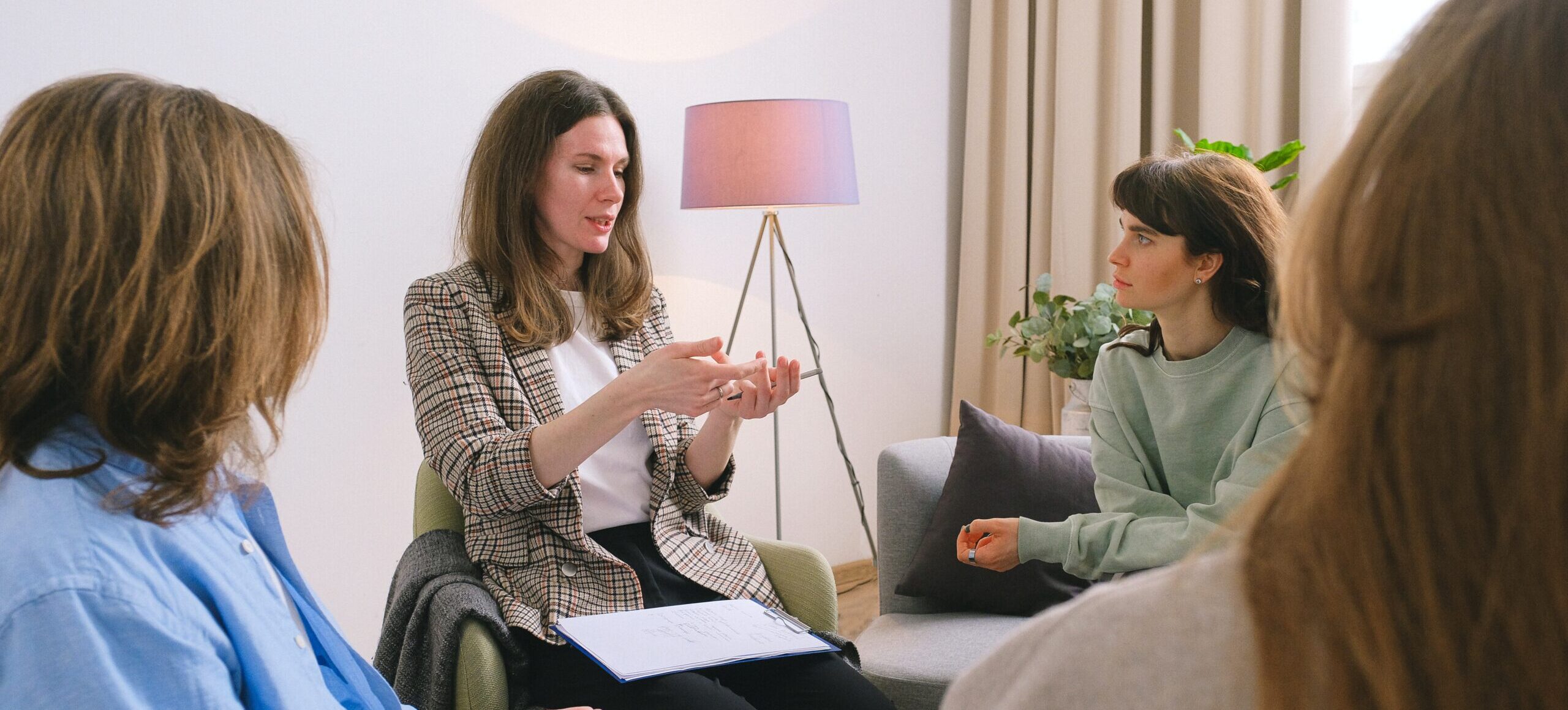While substance use disorder (addiction) is a chronic, progressive, and incurable condition, most addictions respond positively to evidence-based treatment in a drug or alcohol rehab.
What does rehab look like will depend on the level of care you select. ASAM (American Society of Addiction Medicine) categorize addiction treatment on a continuum of care from outpatient treatment (the most flexible and affordable modality) through to residential rehab (the most intensive and immersive delivery method for rehab).
What does drug rehab look like, then?
What Do People Do in Rehab?
If you’re wondering “what does a rehab center look like”, most treatment programs for alcoholism (alcohol use disorder) and drug addiction (substance use disorder) are broadly similar.
Inpatient rehab programs may vary in terms of duration, but most treatment facilities offer access to science-backed therapies and provide environments free of triggers and highly structured days.
If you require residential rehab to recalibrate your life, here’s what to expect from a typical inpatient program:
-
- Intake Evaluation
-
- Detox
-
- Inpatient Treatment
-
- Post-Discharge
Intake Evaluation
The intake and evaluation process at a residential rehab center is a crucial step that enables your treatment team to develop an individualized treatment plan. During this process, you will meet with a team of healthcare professionals for an assessment of your physical, emotional, and psychological state, in addition to any history of substance abuse.
An initial medical assessment will involve a physical examination to check for any medical conditions that require immediate attention – infections or injuries, for instance. The treatment team will also review your medical history to identify any pre-existing conditions that may impact your treatment.
You can also expect a psychological evaluation to assess your mental health and emotional well-being. The healthcare professionals at a drug or alcohol rehab will use standardized tests and interviews to evaluate your psychological state and isolate any co-occurring mental health disorders.
A substance use assessment typically involves a detailed review of your history of drug or alcohol use. Expect questions about the type of substance used, the frequency of use, and the duration of use. The treatment team may also ask about any previous attempts to engage with addiction treatment.
Based on the results of these initial assessments, the healthcare professionals will develop an individualized treatment plan tailored to your specific needs and the severity of your addiction. This plan may include a combination of medications, behavioral therapy, and peer-support groups.
Detox
The detox process is a critical first step in the recovery process and typically takes place at the beginning of a stay at a residential drug rehab center.
Detoxing from drugs or alcohol can be physically and emotionally challenging. By detoxing at an inpatient treatment center, medical professionals will be available around-the-clock to provide supervision and support as you initiate your recovery.
If you are dependent on an addictive substance, withdrawal symptoms will present in its absence. These physical and psychological symptoms occur as your system struggles to cope without the substance. Symptoms vary according to the substance of abuse and the extent of substance abuse. Typical withdrawal symptoms may include nausea, vomiting, diarrhea, anxiety, depression, irritability, and seizures. The severity and duration of these symptoms will vary from person to person.
Depending on the severity of the withdrawal symptoms, medications may be administered to help manage your symptoms. You will also have access to emotional care to help you counter cravings for drugs or alcohol.
During the detox process, you may also receive nutritional support, with healthy meals and proper hydration helping to support your body during the drug or alcohol detox process.
After a week or so, all toxins will be purged from your system and the issue of physical dependence has been addressed. You will now be ready to transition into ongoing therapy.
Inpatient Treatment
Over the course of a 30-day inpatient rehab stay, you will engage with immersive and intensive treatment.
Both alcohol and opioid addictions respond well to MAT (medication-assisted treatment). FDA-approved medications can reduce the intensity of cravings and withdrawal symptoms during detox. Medications may also help promote abstinence in ongoing recovery. MAT is most effective when combined with behavioral interventions that address the psychological component of drug or alcohol addiction.
Psychotherapy is the clinical term for talk therapy. CBT (cognitive behavioral therapy) is the most common talk therapy used to treat addictions and mental health disorders. A therapist will help you identify your addiction triggers and then help you create healthy coping techniques to use instead of substance abuse.
You can also expect individual and group counseling sessions. Individual therapy allows you to explore the specifics of your addiction. Group therapy, by contrast, gives you access to the support of peers with lived experience of drug or alcohol addiction.
Most of the best inpatient treatment centers also provide a variety of holistic therapies alongside evidence-based interventions.
Post-Discharge
The most effective addiction treatment programs include a robust aftercare component that has the following goals:
-
- Helping you to sustain your recovery after rehab.
-
- Offering you strategies to prevent relapse or to manage relapse effectively.
-
- Creating a life that has purpose and building sober relationships.
An aftercare plan will be personalized but may involve:
-
- Stepping down from inpatient rehab to an outpatient treatment program.
-
- Participating in ongoing counseling sessions.
-
- Engaging with the rehab’s alumni program.
-
- Transitioning to a sober living community.
-
- Developing a sober support system.
-
- Attending peer support groups.
What Does a Day in Rehab Look Like?
Here is what to expect if you head to residential rehab at Gratitude Lodge to combat drug or alcohol addiction.
Morning
One of the main aims of a residential treatment program for addiction is to help you develop positive lifestyle changes. Many people with drug or alcohol addictions have unstructured lives. Inpatient rehab helps you to implement these changes gradually and with expert guidance.
In the early stages of recovery, many people experience ongoing sleep disruptions. By going to bed and getting up at the same time every day at residential rehab, you will promote superior sleep health.
After eating a nutritious breakfast with peers, mornings at Gratitude Lodge treatment centers involve clinical sessions. A nutritionist visits our treatment facilities in Southern California three times weekly to make health shots and smoothies to invigorate you as you leave substance abuse behind.
Our program consists of intensive clinical programming for six hours each day. In addition to morning meditation, gratitude practice, mindfulness, and external peer-support meetings, you will also participate in counseling sessions (individual and group), and psychotherapy sessions.
Group counseling sessions – these are typically held in the mornings – involve a therapist leading group discussions on topics related to addiction and recovery, such as:
-
- Relapse prevention
-
- Grief and loss
-
- Meditation
-
- Breathworks
-
- Future planning
-
- Trauma processing
A healthy and balanced lunch will set you up for the remainder of the day.
Afternoon
During the afternoons at Gratitude Lodge, expect more group therapy sessions as well as one-to-one sessions.
Individual therapy gives you chance to work closely with a therapist to explore the root cause of your addiction. You will have time to reflect after the session.
You can also access psychotherapies like CBT (cognitive behavioral therapy) and DBT (dialectical behavior therapy) at Gratitude Lodge. CBT helps you to become more aware of what triggers you to use drink or drugs and to replace substance abuse with healthier coping techniques. DBT enables you to tolerate emotional distress more effectively.
Gratitude Lodge inpatient treatment programs deliver a variety of holistic therapies that include:
-
- Yoga
-
- Beach activities
-
- Breathwork
-
- Art therapy
-
- Sound bowls
Music therapy and Reiki – Japanese energy healing – take place once a week, and you can take advantage of a gym membership to enjoy sessions three times each week as you strengthen your body and mind.
Evening
After dinner with peers, you will have time for relaxation, preparation, and journaling.
Early bedtimes at Gratitude Lodge will help you to feel well rested for more structured therapy the following day.
Get Help at Gratitude Lodge
If you are addicted to illicit drugs, prescription medications, or alcohol, we can help you initiate a sustained recovery at Gratitude Lodge in Southern California.
Kickstart your recovery with our supervised medical detox program and streamline the intensity of drug withdrawal while minimizing the chance of complications or relapse. After drug detox, you can move directly into an inpatient or outpatient addiction treatment program according to your circumstances and the severity of your substance use disorder.
We offer dual diagnosis treatment programs for those who have a drug addiction co-occurring with a mental health condition like anxiety or depression that enable you to address both conditions simultaneously.
All Gratitude Lodge treatment programs utilize a combination of science-based and holistic therapies that include:
-
- MAT (medication-assisted treatment)
-
- Psychotherapies
-
- Individual counseling
-
- Family therapy
-
- Group therapy
-
- Holistic therapies
-
- Aftercare
When you are ready to initiate your recovery from drug addiction, call Gratitude Lodge at 800-994-2184.
What Does Rehab Look Like FAQs
Rehab is a kind of care that helps you regain, maintain, or improve the abilities you need for everyday life. These abilities can be physical, mental, or cognitive (thinking and learning), and you might have lost them due to an illness, injury, or medical treatment.
When you first go to rehab, you’ll typically undergo an assessment to evaluate your physical and mental health, addiction severity, and treatment needs. After the assessment, you’ll begin a structured treatment program that may include detoxification, counseling, therapy, support group sessions, and educational activities to address the underlying issues of addiction and work towards recovery.
The 4 pillars of rehab, also known as the 4 pillars of treatment, encompass detoxification, therapy and counseling, medication management, and support and aftercare. Detoxification involves supervised withdrawal to rid the body of substances, while therapy addresses the psychological aspects of addiction. Medication management may be used to aid recovery, and having a support network and aftercare plan is crucial for long-term sobriety and preventing relapse.




























